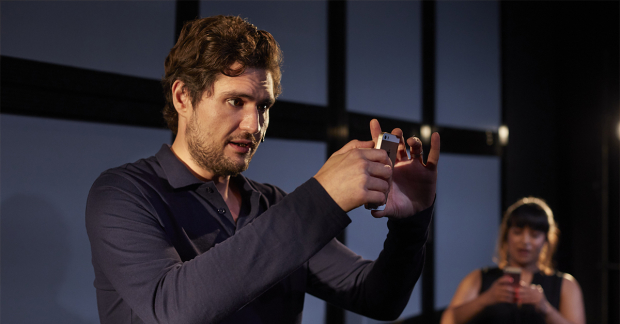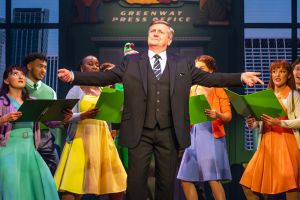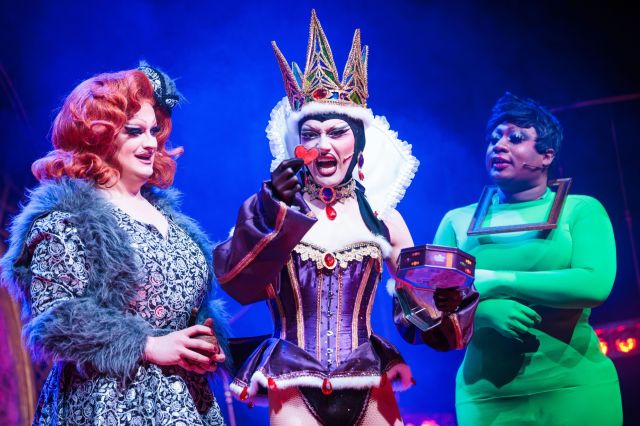Review: Rich Kids: A History of Shopping Malls in Tehran (Traverse Theatre, Edinburgh)
Javaad Alipoor’s new play looks at an Instagram phenomenon, shopping malls and society

© Pete Dibdin
Ever heard of a techno fossil? It's what archaeologists are using to describe the things the human race creates which will be discovered by someone or something in the ground millions of years into the future. Our phones, basically, which are likely to last a lot longer than us, will end up fusing with the rocks and earth for a millennia or two, or three or many.
This is just one of the many startling facts about phones, social media, humanity and our history which are thrown out at the audience at the beginning of Javaad Alipoor's muddled new piece. It's a good start, and Rich Kids touches on some epic and important themes – referencing the likes of Susan Sontag's theories of photography and Walter Benjamin's ideas of society and commerce along the way. But ultimately it's a great show waiting to get out of an OK one.
Using Instagram – with a slightly dodgy internet connection the day I saw it – Alipoor and his co-performer Peyvand Sadeghian curate a story around the young and the mega-rich in Tehran, the people whose parents overthrew the Shah, but who themselves wallow in their wealth. You can see this crew at the richkidsoftehran hashtag, pouring champagne over Rolexes and buying expensive cars. It's not a new phenomenon, as Alipoor points out, Thomas Gainsborough's portraits of the British elite were designed in much the same way – to draw attention to the lives and opulence of his subjects. But who really are these kids and why aren't they taking responsibility for the world rapidly disintegrating around them?
There's a lot of multi-media used in this interactive, tech-heavy play, including live streaming on Instagram and in-app face distortion. But there's just too much being said about a world which has gone too far, and not enough about what's to be done. In his more successful The Believers Are But Brothers, there was an attempt to resolve the stories of the people he focused on. Rich Kids tries to create a complete history of the past, present and future – with a focus on the east – in an hour. Surely impossible.
But his is an urgent, relevant voice and though this piece doesn't succeed entirely, Alipoor and his co-creator Kirsty Housley are the kind of people who really should be running the country, the Whitehouse, or even the world.


















